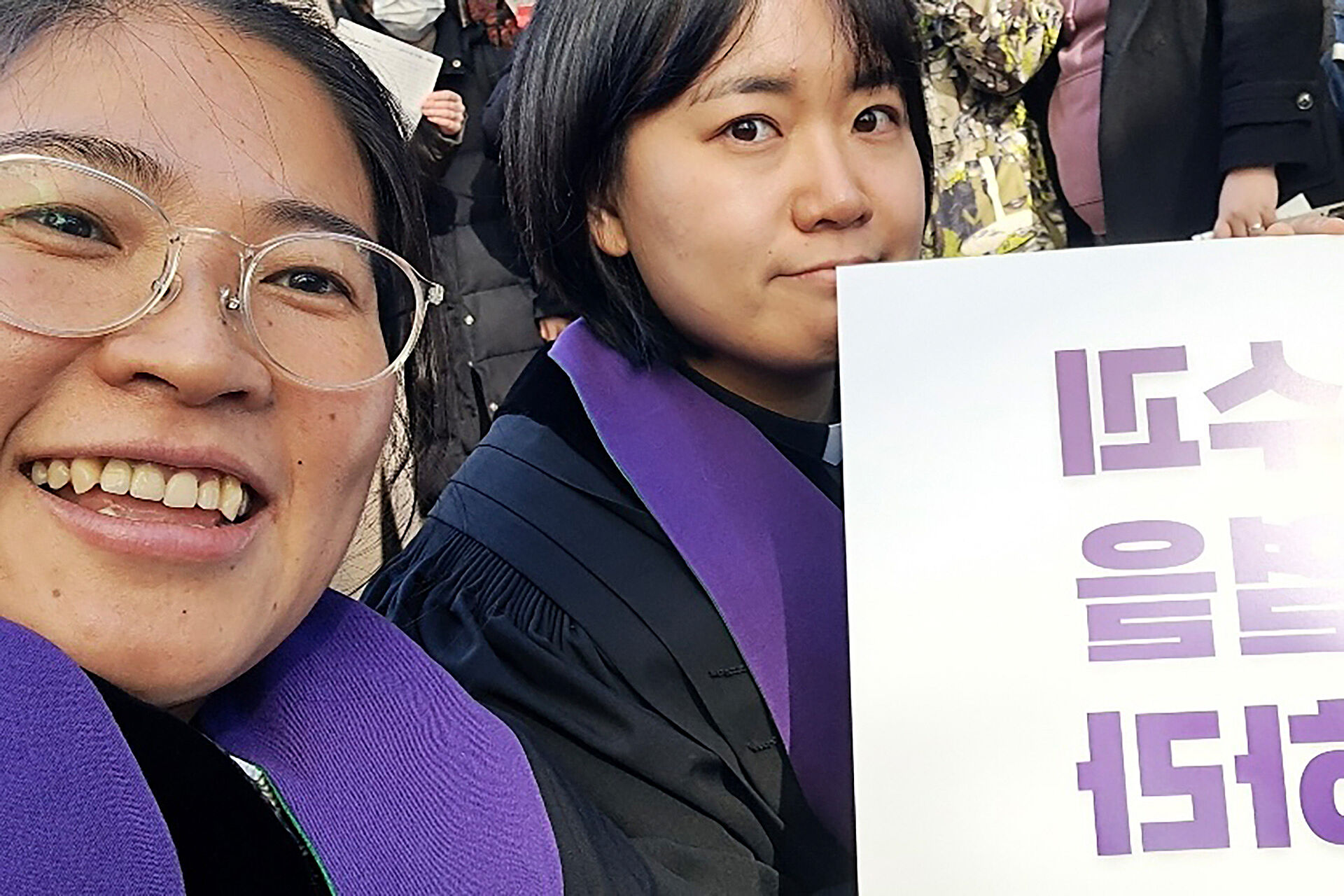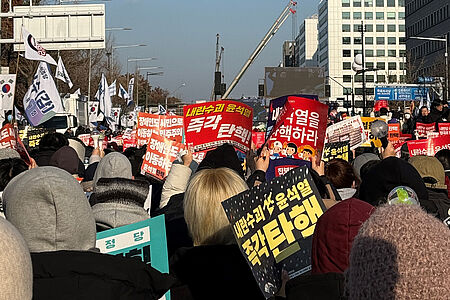Wednesday, 18. December 2024
South Korea: Church Backs Protest Movement Against President Yoon
Three questions for South Korean Pastor Jungha Park

As EMS, we are a large global community. We are united in our faith and we live together in solidarity with one another. In these days, we feel especially connected to the people of South Korea who are working for democracy, stability and peace in the current government crisis – triggered by President Yoon’s sudden declaration of martial law on 3 December. The Presbyterian Church in the Republic of Korea (PROK) and the Presbyterian Church of Korea (PCK) are members of the EMS Fellowship. We asked Jungha Park, pastor of the PCK, three questions. About the protests. About church. And about the public character of the Christian faith.

You have taken part in demonstrations. What did you demonstrate for?
I took part in a rally calling for the impeachment of South Korean President Yoon. He had suddenly declared martial law without any procedure. People were shocked to see soldiers entering the National Assembly under martial law.
President Yoon criticised those who opposed him and said that was the reason for the emergency martial law in public address. I felt very dangerous when I saw this, because it was no different from the dictator's mind.
South Korea's struggle for democracy has been a long and hard road, characterized by many challenges and sacrifices. I do not believe that this painful history will be repeated.
(Editor's note: Martial law was lifted within three hours thanks to the efforts of citizens, and the impeachment motion was passed on 14 December.)
You are a pastor. Were you at the demonstration as a private individual or as a representative of the church?
I participated in the demonstrations in several ways. First, as a pastor, I took part in a march organised by an interdenominational group of Christians. Then, as a citizen, I led my students to another demonstration in front of the National Assembly. And recently I was there with other members of my church.
As a pastor, I am not different from who I am as a person. I try to do whatever is asked of me, whether inside or outside the church, based on my identity as someone who belongs to Christ.
Should the church be visible at demonstrations? Why?
The church is called to realise God's justice and to stand in solidarity with the marginalised of the world. This is part of our mission.
People are still dying at work. Economic inequality is growing. Conflicts of all kinds divide our society. As democracy retreats, the powerful remain unchecked and the weak suffer even more.
As Matthew 5:14-15 says, the light cannot be hidden. In this time of injustice, I believe that the church must join in the protests and stand with people who want to live together. This is how the church exists as the light of the world.